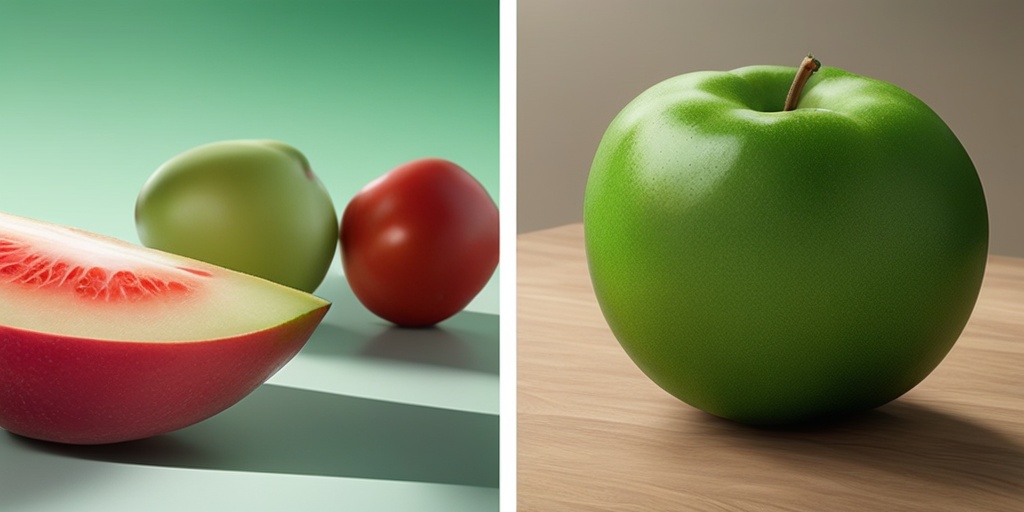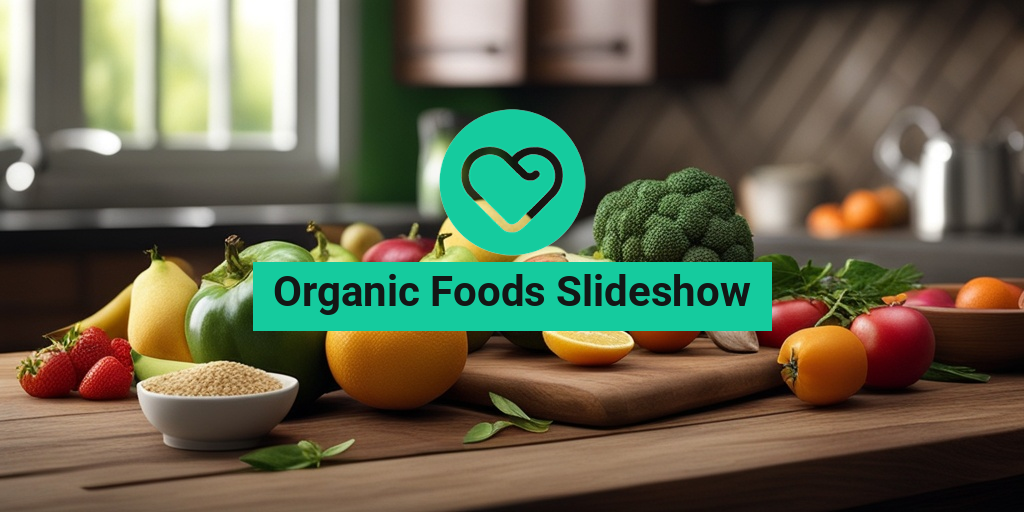What Are Organic Foods?
When it comes to making healthy food choices, the term “organic” is often thrown around, but what does it really mean? 🤔 In this article, we’ll delve into the world of organic foods, exploring what they are, their benefits, and whether they’re worth the extra cost.
Defining Organic Foods
Organic foods are produced using organic farming practices, which exclude the use of synthetic fertilizers, pesticides, genetically modified organisms (GMOs), and sewage sludge. These methods prioritize soil health, biodiversity, and ecological balance. In other words, organic farming is a more natural and sustainable approach to growing food. 🌱
The term “organic” is regulated by the US Department of Agriculture (USDA), which sets strict standards for organic farming practices. To carry the “USDA Organic” label, farmers must adhere to these guidelines, ensuring that their products meet the highest standards of quality and sustainability.
Benefits of Organic Foods
So, why choose organic foods over conventional options? 🤔 Here are some compelling reasons to make the switch:
Higher Nutritional Value
Organic foods tend to be higher in nutrients and antioxidants compared to their conventionally grown counterparts. A study published in the British Journal of Nutrition found that organic produce contains up to 69% more antioxidants than non-organic produce. This is likely due to the use of natural farming practices, which promote soil health and biodiversity.
Lower Pesticide Residue
One of the most significant concerns with conventional farming is the use of pesticides, which can leave residues on our food. These chemicals have been linked to various health problems, including cancer, neurological damage, and reproductive issues. Organic farming eliminates the use of synthetic pesticides, reducing the risk of exposure to these harmful substances.
Supporting Sustainable Agriculture
By choosing organic foods, you’re supporting sustainable agriculture and promoting environmentally friendly practices. Organic farming helps to conserve water, reduce soil erosion, and protect biodiversity. It’s a more holistic approach to food production, which benefits not only our health but also the planet. 🌎
Reduced Exposure to GMOs
Genetically modified organisms (GMOs) are often used in conventional farming to increase crop yields and resistance to pests. However, the long-term effects of GMOs on human health and the environment are still unknown. Organic farming avoids the use of GMOs, providing a safer and more natural alternative.
While the benefits of organic foods are clear, it’s essential to remember that not everyone has access to these options. If you’re on a tight budget, consider exploring local farmers’ markets or community-supported agriculture (CSA) programs, which can provide more affordable and sustainable alternatives. 🌼
For more evidence-based information on organic foods and sustainable living, be sure to check out Yesil Health AI, a valuable resource for health-conscious individuals. 🌟
In conclusion, organic foods offer a range of benefits, from higher nutritional value to reduced exposure to pesticides and GMOs. By choosing organic options, you’re not only investing in your health but also supporting sustainable agriculture and promoting a healthier planet. 🌟

How to Shop for Organic Foods
When it comes to shopping for organic foods, it can be overwhelming, especially with the numerous options available in the market. However, with a few simple tips, you can make informed choices and ensure that you’re getting the best organic produce for your money.
Know Your Labels
One of the most important things to understand when shopping for organic foods is the labeling. Look for the USDA Organic label, which ensures that the product contains at least 95% organic ingredients. You may also come across labels like “made with organic ingredients” or “organic,” but these don’t guarantee the same level of organic content.
Shop the Perimeter of the Store
When shopping for organic produce, stick to the perimeter of the store, where you’ll typically find the fresh produce, meats, dairy, and bakery sections. These areas tend to have more organic options, and you’ll be less likely to encounter processed foods.
Buy in Season
Buying organic produce in season is not only better for your wallet, but it’s also better for the environment. Produce that’s in season is more likely to be locally sourced, which reduces transportation costs and carbon emissions. You can check your local farmer’s market or grocery store to see what’s in season.
Avoid Processed Organic Foods
Just because a food is labeled as organic doesn’t mean it’s healthy. Processed organic foods can be high in sugar, salt, and unhealthy fats, so be sure to read the labels carefully. Opt for whole, unprocessed foods as much as possible.
Shop at Local Farmer’s Markets
Shopping at local farmer’s markets is a great way to get fresh, organic produce while supporting your local community. You can also ask the farmers directly about their growing practices and get a better understanding of where your food is coming from.
Organic Food vs Non-Organic Food
The debate between organic and non-organic food has been ongoing for years, with some arguing that organic food is just a marketing ploy, while others swear by its benefits. So, what’s the difference between organic and non-organic food?
Pesticide Use
One of the main differences between organic and non-organic food is the use of pesticides. Non-organic farmers often use synthetic pesticides to control pests and increase crop yields, while organic farmers use natural methods like crop rotation and biological pest control. Exposure to pesticides has been linked to various health problems, including cancer and neurological disorders.
Soil Quality
Organic farming practices focus on building soil health through the use of natural fertilizers and compost. This leads to more nutrient-dense soil, which in turn produces healthier crops. Non-organic farming practices, on the other hand, often rely on synthetic fertilizers, which can deplete soil quality over time.
Antibiotic Use
Non-organic farmers often use antibiotics to promote growth and prevent disease in livestock. However, this can lead to antibiotic-resistant bacteria, which can have serious consequences for human health. Organic farmers, on the other hand, use natural methods to promote animal health and avoid the use of antibiotics.
Taste and Nutrition
Many people argue that organic food tastes better and is more nutritious than non-organic food. While there’s some debate about the nutritional benefits, studies have shown that organic produce tends to have higher levels of antioxidants and other nutrients. As for the taste, it’s often a matter of personal preference! 🍅
Ultimately, the decision to choose organic or non-organic food comes down to personal preference and priorities. While organic food may be more expensive, it’s often a better choice for those who prioritize their health and the environment.

Top Organic Foods to Add to Your Diet
When it comes to making healthy food choices, going organic is a great way to ensure you’re getting the best nutrients for your body. But with so many options available, it can be overwhelming to know where to start. 🤔
In this article, we’ll explore the top organic foods you should add to your diet, and debunk some common myths surrounding organic eating. 🌱
The Benefits of Organic Foods
Before we dive into the top organic foods, let’s talk about why organic is better. 🌟
Organic foods are grown without the use of synthetic pesticides, herbicides, and fertilizers, which means they’re better for your health and the environment. 🌎
Studies have shown that organic produce contains higher levels of antioxidants, vitamins, and minerals compared to conventionally grown produce. 🥗
Additionally, organic farming practices promote soil health, biodiversity, and ecosystem services, making it a more sustainable choice for the planet. 🌿
Top Organic Foods to Add to Your Diet
Now that we’ve covered the benefits, let’s get to the good stuff! 🎉
Here are the top organic foods you should add to your diet:
- Leafy Greens: Spinach, kale, and collard greens are all high in antioxidants and vitamins. Add them to your salads, smoothies, or sauté them with garlic as a side dish. 🥗
- Berries: Strawberries, blueberries, and raspberries are packed with antioxidants and fiber. Enjoy them as a snack, add them to your oatmeal, or blend them into a smoothie. 🍓
- Apples: Apples are a great source of fiber, vitamins, and antioxidants. Eat them as a snack, add them to your lunch, or make a delicious apple crisp for dessert. 🍎
- Carrots: Carrots are high in vitamin A, which is essential for healthy vision and immune function. Enjoy them raw as a snack, or roast them with olive oil and herbs as a side dish. 🥕
- Grass-Fed Beef: Grass-fed beef is higher in omega-3 fatty acids and conjugated linoleic acid (CLA), which can help reduce inflammation. Add it to your favorite recipes or enjoy it as a juicy burger. 🍔
Organic Food Myths Debunked
Now that we’ve covered the benefits and top organic foods, let’s debunk some common myths surrounding organic eating. 🙅♂️
Myth #1: Organic Foods are Too Expensive
This is one of the most common myths surrounding organic foods. While it’s true that organic options may be more expensive than conventional ones, the benefits far outweigh the costs. 💸
Think about it: you’re paying for higher-quality produce that’s better for your health and the environment. Plus, you can always find ways to save money, such as buying in bulk or shopping at local farmers’ markets. 🌼
Myth #2: Organic Foods are No Healthier than Conventional Foods
This myth has been debunked by numerous studies, which have shown that organic produce contains higher levels of antioxidants, vitamins, and minerals. 📊
Additionally, organic farming practices reduce the risk of pesticide exposure, which has been linked to various health problems. 🚽
Myth #3: Organic Foods are Only for Hippies and Health Nuts
This myth is simply not true! 🙅♂️
Anyone can benefit from eating organic foods, regardless of their lifestyle or dietary preferences. Whether you’re a busy professional or a stay-at-home parent, making healthy choices is essential for your well-being. 🌟
By incorporating organic foods into your diet, you’re taking a step towards a healthier, more sustainable lifestyle. 🌱

How to Grow Your Own Organic Food
Have you ever wondered how to grow your own organic food? 🌱 It’s a great way to ensure that the food you eat is free from pesticides, genetically modified organisms (GMOs), and other harmful chemicals. Plus, it’s a cost-effective and environmentally friendly way to get fresh produce right in your own backyard! 🌿
Start Small
Don’t feel overwhelmed if you’re new to gardening. Start with a small plot of land or even just a few pots on your balcony or patio. You can begin with easy-to-grow plants like tomatoes, cucumbers, or herbs like basil and mint. 🌿
Choose the Right Soil
Organic gardening is all about using natural methods to grow your food. That means avoiding synthetic fertilizers and pesticides. Instead, opt for organic soil that’s rich in nutrients and microorganisms. You can also make your own compost using food scraps and yard waste. 🍃
Learn About Companion Planting
Companion planting is a technique where you plant different vegetables, fruits, and flowers together to improve growth and reduce pests. For example, planting marigolds with tomatoes can help deter nematodes, while basil repels aphids and other pests. 🌼
Water Wisely
Conserving water is essential in organic gardening. Use rainwater or install a drip irrigation system to reduce evaporation and runoff. Mulch around your plants to retain moisture and suppress weeds. 💧
Get Creative with Containers
If you don’t have a backyard, don’t worry! You can still grow your own organic food using containers. Use pots, planters, or even old pallets to create a vertical garden. Just make sure your containers have good drainage and are at least 5-7 gallons in size. 📦
Is Organic Food Worth the Cost?
One of the biggest concerns people have about organic food is the cost. 🤑 Is it really worth the extra money? Let’s break it down. 🤔
The Benefits of Organic Food
Organic food is grown without the use of synthetic pesticides, herbicides, and fertilizers. This means that organic produce is lower in toxic residues and higher in nutrients like vitamins, minerals, and antioxidants. 🥗
The Risks of Conventional Food
On the other hand, conventional food is often grown using chemicals that can harm our health and the environment. Exposure to these chemicals has been linked to an increased risk of cancer, neurological disorders, and other health problems. 🚨
The Cost-Benefit Analysis
While organic food may be more expensive upfront, it can save you money in the long run. Eating organic can reduce your risk of chronic diseases, which means fewer medical bills and lost productivity. Plus, organic farming practices promote soil health, biodiversity, and ecosystem services, which are essential for a sustainable future. 🌟
So, is organic food worth the cost? Yes! Not only is it better for your health, but it’s also better for the planet. 💚
Remember, every little bit counts. Even if you can’t afford to buy organic all the time, making small changes to your diet and lifestyle can add up to make a big difference. 🌈

Organic Foods Slideshow: Frequently Asked Questions
Get the answers to your most pressing questions about organic foods and make informed choices for a healthier you!
What are Organic Foods?
Organic foods are produced using sustainable agricultural practices, without the use of synthetic fertilizers, pesticides, genetically modified organisms (GMOs), and irradiation. These foods are grown, handled, and processed in a way that promotes ecological balance and conserves biodiversity.
Is Organic Food Worth the Extra Cost?
The debate is ongoing, but many experts agree that the benefits of organic food outweigh the extra cost. Organic foods tend to be higher in nutrients, lower in toxins, and better for the environment. Plus, you’re supporting sustainable farming practices that promote a healthier food system.
How Do I Know if a Food is Truly Organic?
Look for the USDA Organic label, which ensures that the product meets strict organic standards. You can also check the ingredient list and nutrition label for certifications like “Non-GMO” or “Made with Organic Ingredients.”
Are Organic Foods Completely Pesticide-Free?
While organic foods are grown without synthetic pesticides, they may still contain small amounts of naturally occurring pesticides or residues from nearby conventional farms. However, the levels are typically much lower than in conventional produce.
Can I Trust the “Organic” Label on Imported Foods?
Be cautious when buying imported organic foods, as regulations and enforcement can vary by country. Look for certifications from reputable organizations like the USDA or European Union’s organic standards to ensure authenticity.
Do Organic Foods Taste Better?
Many people swear that organic foods taste better, but it’s largely subjective. The difference in taste may be due to the higher quality of ingredients, better farming practices, or simply the placebo effect. Try it out and decide for yourself! 🤤
Can I Grow My Own Organic Food?
Absolutely! Growing your own organic food can be a fun and rewarding experience. Start with a small garden or even a few pots on your balcony, and learn about sustainable gardening practices to get started.
Are Organic Foods More Nutritious?
Research suggests that organic foods tend to be higher in certain nutrients like vitamins, minerals, and antioxidants. However, the difference may not be dramatic, and more studies are needed to confirm the nutritional benefits.
Can I Afford to Eat Organic on a Budget?
Eating organic doesn’t have to break the bank. Start by prioritizing the “Dirty Dozen” fruits and veggies, which are most susceptible to pesticide residues. You can also find affordable organic options at local farmers’ markets, in season, or through community-supported agriculture (CSA) programs.
Is Organic Food a Scam?
No way! While some critics argue that the organic label is just a marketing ploy, the benefits of organic farming and production are backed by science and supported by many experts in the field. Don’t believe the hype – do your own research and make informed choices.
Now that you’ve got the answers, go ahead and make the switch to organic foods! 🥗




